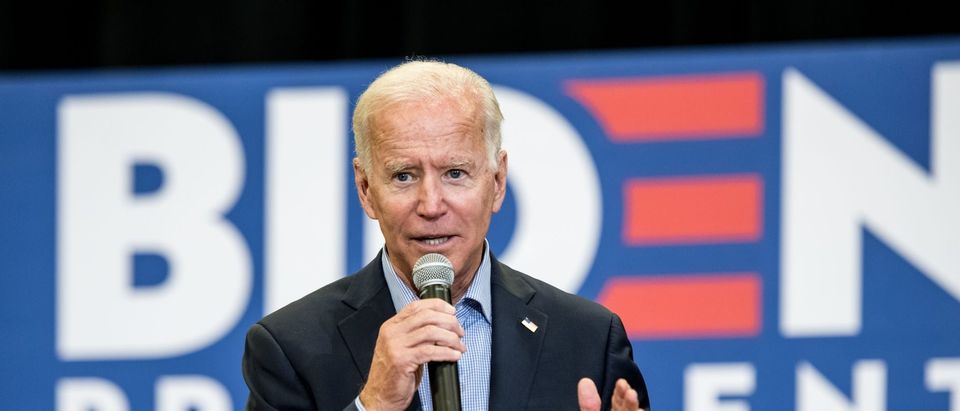Donald Trump appears likely to join the elite club of one-term American presidents during the last century. But give him his due: Trump came far closer than Herbert Hoover, Jimmy Carter and George H.W. Bush to winning a second term.
Three factors did him in: the coronavirus pandemic, his personality and his refusal to articulate second term priorities. Weak economic performance undermined Hoover, Carter and Bush. Even with the U.S. economy still in a recession, the not-too-distant memory of Trump’s strong economic record (before March 2020) probably helped boost his relative strength, but it was insufficient to offset the pandemic and his personality.
Biden’s victory effectively mirrored Trump’s defeat, as the former vice president ran on vague promises of not being Donald Trump and solving the pandemic. His campaign issued a 100-plus-page policy manifesto reflecting compromises with the Democratic Party’s ascendant progressive leftwing led by Senators Sanders and Warren, plus House member Ocasio-Cortez, but Biden will be constrained in implementing this agenda by a much-reduced Democratic House majority, a likely GOP Senate, and rapidly rising public debt.
Biden’s election brought no coattails, as Republicans appear poised to hold the Senate, gained several House seats and increased their presence in statehouses and governorships around the country. If ever America faced “divided government,” it is now.
Biden’s victory also resembles Jimmy Carter’s 1976 win in one significant respect: he’s apparently a nice guy. Carter also succeeded a much-disliked president (Nixon) and the amiable president who pardoned him (Ford). Americans believed that Nixon created enough chaos and disruption through his Watergate crimes that the country needed new political leadership.
Carter ran as the anti-Nixon much like Biden, who campaigned mostly from his Delaware basement, ran as the anti-Trump. As we know from Carter’s presidency, being a nice guy isn’t enough to ensure a successful presidency.
Biden’s election mandate entails three priorities: (1) don’t behave like Trump (that’s relatively easy), (2) address the pandemic (promote masks, distancing and speed the vaccine), and (3) restore economic growth and unemployment to pre-pandemic levels (the toughest challenge).
Of these priorities, the last will be the most difficult for the Biden-Harris team: neither has any private-sector experience or met a payroll. Both politicians have enjoyed careers primarily as public-sector elected officials. The temptation to believe that economic growth can be sustained by regulatory expansion, more deficit spending, and continued easy monetary policy will be difficult to resist. Their instincts reflexively favor more government.
Americans typically vote on economic pocketbook issues and care far less about foreign-policy matters, absent a war bringing American casualties. Given Biden’s Senate and vice presidential experience, a President Biden can also play the anti-Trump card in restoring American leadership among foreign allies, especially in Europe. Afghanistan, Iraq, Russia, Turkey and, especially China will remain trouble spots, with China perhaps presenting the biggest challenge in terms of economic, military and political leadership.
If Biden were to lead a bipartisan effort to identify, prioritize and fund strategic investments (infrastructure, climate, artificial intelligence, military, basic research), he could position America competitively for at least two decades. The nation needs more pragmatism and less bickering.
Biden says that he plans to heal and unify the country, that he will be the president of all Americans, not just of those who voted for Democrats. Americans will be watching. If he embraces the progressive left’s identity-politics agenda and encourages the notion that our nation is structurally racist, he will fail as a unifier.
It’s hard to argue structural racism after an eight-year Obama presidency and the prospect of a Vice President Harris. By all means prosecute vigorously police (and other law-enforcement) misconduct against all Americans, but stop using a relatively few examples to indict our entire society. Biden needs a “Sister Souljah” moment.
If Biden pursues identity politics, he will embolden Republicans to step up an economic-empowerment and safe-communities (versus sanctuary-cities) agenda that will further erode minorities’ support for Democrats. More Americans are realizing that trickle-down welfare policies have not reduced poverty, despite trillions of public funds and a decades-long War on Poverty. It’s time for new approaches.
President Kennedy embraced a positive, forward-looking, aspirational agenda that captured the nation’s imagination while also grounding future progress in a recognition of our past accomplishments.
Joe Biden must decide whether he will govern as a true centrist or, instead, acquiesce to a far-left-leaning agenda that too readily dismisses American accomplishments, distorts our history, and demeans earnest, patriotic Americans. He should move from MAGA to restoring American pride.
Charles Kolb served as Deputy Assistant to the President for Domestic Policy from 1990-1992 in the George H.W. Bush White House


